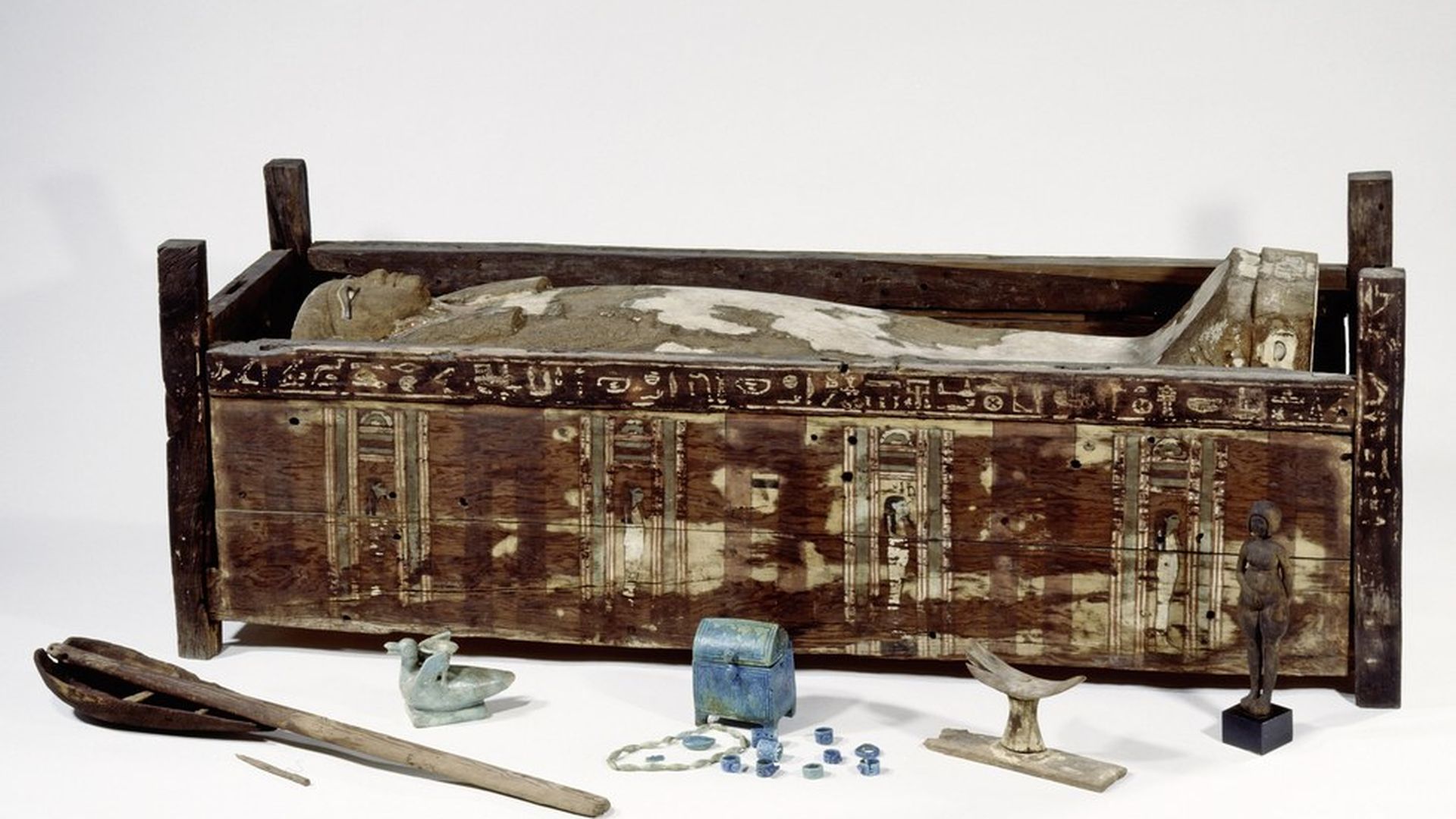Scientists sequenced DNA from ancient Egyptian mummies
Add Axios as your preferred source to
see more of our stories on Google.

bpk/Aegyptisches Museum und Papyrussammlung, SMB/Sandra Steiss
Foreign conquests and assimilation into Greek and Roman empires more than 1,500 years ago appear to have left very little genetic imprint on ancient Egyptians, according to a new study that, for the first time, successfully sequenced DNA from ancient Egyptian mummies.
Main takeaways:
- Ancient Egyptians show more genetic similarity to Near Easterners from western Asia and the Middle East than modern Egyptians.
- The DNA of the mummies was largely unchanged even as the Greeks and Romans conquered the region. But modern Egyptians, depending where they are from, have 10 to 20% genetic makeup from sub-saharan African ancestry, indicating there was a sudden increase in gene flow into Egypt over the past 1500 years. The researchers suggest this could be due to increased trade -including slaves - along the Nile River.
- The study marks the first time researchers successfully sequenced the genomes of ancient Egyptians - "game-changing results."
- "We find no genetic change from the New Kingdom to the Roman time period, suggesting that foreign invasions (e.g. Alexander the Great) have left no genetic descendants that we can detect," said lead author Johannes Krause from the Max Planck Institute for the Science of Human History.
The details: The team sampled 151 mummified individuals originally from the archaeological site of Abusir el-Meleq, along the Nile River in Middle Egypt. Radiocarbon dating showed the range of the individuals spanned 1300 years from 1400 BCE to 400 CE. They recovered mitochondrial genomes from 90 individuals, and genome-wide datasets from three individuals.
Limitation: The research team cautioned that since the genetic samples were taken from just one archaeological site, they may not represent all of ancient Egypt.
